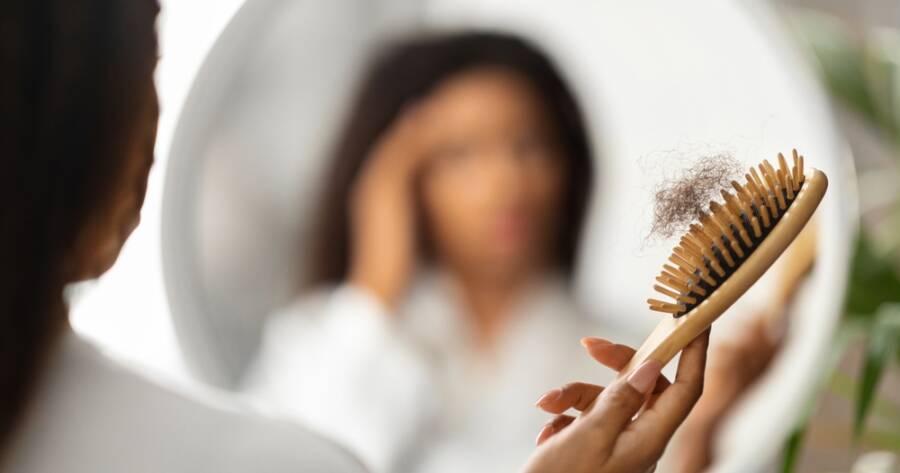Hair loss in women is a common and often distressing issue, impacting self-esteem and emotional well-being. Causes can vary widely, including genetics, hormonal changes, medical conditions, stress, poor nutrition, and certain lifestyle choices like hair treatments.
Understanding Female Hair Loss
Hormonal Changes: One of the primary causes of female hair loss is hormonal changes, such as those that occur during pregnancy, menopause, or as a result of birth control pills.1 These hormonal shifts can affect the hair growth cycle, leading to thinning or shedding.
Nutritional Deficiencies: Lack of essential nutrients like iron, protein, and vitamins can lead to hair loss in women. A balanced diet is crucial for maintaining healthy hair. Online resources are available to guide women in identifying and addressing nutritional deficiencies that may be contributing to hair loss.
Lifestyle Factors and Hair Loss
Stress: High-stress levels can trigger a type of hair loss known as telogen effluvium. Managing stress through relaxation techniques and lifestyle changes is important. Exploring online articles and forums can offer practical advice on reducing stress and its impact on hair health.
Hair Styling Practices: Over-styling, using harsh chemicals, and frequent heat treatments can weaken hair and lead to hair loss. It’s important to adopt hair-friendly practices. The internet is full of tips and tutorials on how to maintain healthy hair through proper styling and care.
Medical Conditions and Hair Loss
Thyroid Disorders: Both hypothyroidism and hyperthyroidism can cause hair loss. If you suspect a thyroid issue, it’s important to seek medical advice. Additionally, online medical sites can provide further information on how thyroid health affects hair.
Autoimmune Diseases: Conditions like alopecia areata, where the immune system attacks hair follicles, can lead to hair loss. Understanding these conditions is crucial, and online resources can offer support and information.
Solutions for Female Hair Loss
There are numerous solutions available for women experiencing hair loss, each tailored to different causes and individual needs. Medical treatments, such as minoxidil (a topical solution that stimulates hair growth) and prescription medications like finasteride, can be effective in slowing hair loss and promoting regrowth. For those seeking a more holistic approach, natural remedies such as essential oils, scalp massages, and supplements like biotin or zinc may also provide benefits.2
Lifestyle adjustments are equally important in managing hair loss. Reducing stress through practices like meditation, yoga, or regular exercise can help minimize hair loss triggered by stress. Improving diet by incorporating nutrient-rich foods, such as leafy greens, lean proteins, and healthy fats, supports overall hair health. Additionally, specialized hair care products designed for thinning hair, including volumizing shampoos, conditioners, and leave-in treatments, can help strengthen hair and create the appearance of fuller locks. By combining these treatments and making targeted lifestyle changes, many women can effectively manage hair loss and improve the health and appearance of their hair.
Learn More
Female hair loss can be a distressing experience, but understanding the triggers and exploring solutions can help. By exploring online, women can find a wealth of information to help them address their hair loss effectively. Remember, every woman’s journey is unique, and the key to finding the right solution lies in understanding your body’s needs.
